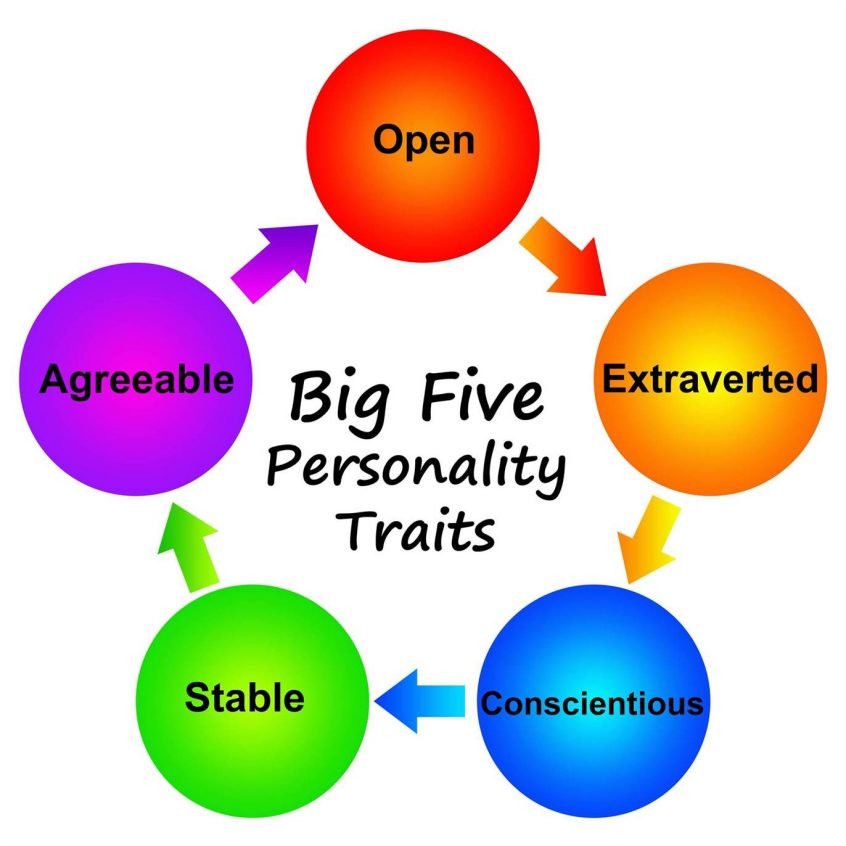The Big Five personality traits are five traits (what a surprise) developed by psychologists that seem to account for a great deal of an individual’s personality. The five traits are Openness to Experience, Conscientiousness, Extraversion, Agreeableness, and Neuroticism. Each of the five can have an effect on the success of a business; when starting a business, it might be a good idea to evaluate how some of your own tendencies might impact your success.
The first trait, openness to experience, seems to have a double-edged effect on startups. Openness to experience is, in essence, your adventurousness; your willingness to go out and do something bold. The advantages to this are clear; if you’re willing to take risks and put your ideas out there, you might find a lot of success in the business world. The downside of this trait is that it can tend to come with listlessness; once one idea is complete, or an adventure is had, you might be inclined to move onto the next adventure immediately, and if that new adventure takes up too much of your time, you might neglect your business. Those of you who are high in openness should try to keep the opportunities and adventures that exist within your business in mind.
The second trait, conscientiousness, is about self-discipline and impulse control. Detail-oriented, well-prepared, organized people are high in conscientiousness; conversely, people who would describe themselves as lazy, unmotivated or disorganized are not. This trait, like openness, comes with advantages and disadvantages. A great work ethic and rigid scheduling mean you won’t just let your business slide; you consider your work to be a reflection of yourself, so you’ll be able to put a great deal of effort into what you do. Rigidity is the element to be avoided here; if you know you’re very conscientious, be mindful of micro-managing and inflexibility, both of which can be toxic to a new startup.
Extroversion, the third trait, is wildly misunderstood by many. Quite simply, extroverts derive energy from interacting with others, while introverts derive energy from being alone. In business, extroversion is one of the best predictors of success. Think about all the interacting you have to do with others in order to run a successful business, the number of stakeholders you need to consider. From hiring new employees to securing funding to finding clients, you need to be interacting with others every day, and many times multiple different people each day, many of whom will be complete strangers. For an introvert, this might be a nightmare, while for an extrovert, it’s paradise.
On our next post, we’ll delve into the last two traits, and look at an alternative personality system. For now, remember that human beings are incomprehensibly complex, and that personality inventories are a way to self-evaluate; when you know your tendencies, you can mitigate some of the problems you might bring to the table. A person who is low in conscientiousness, for example, might need help with bookkeeping, because the activity relies heavily on organizational skills and detail-oriented thinking.

